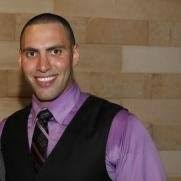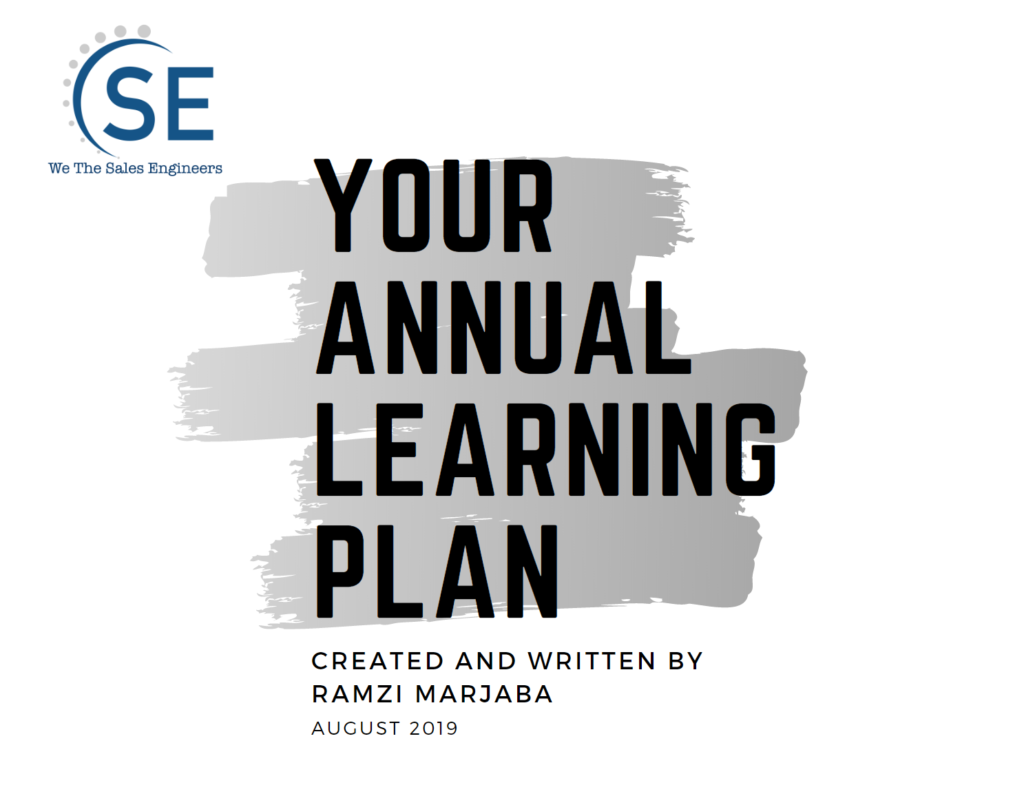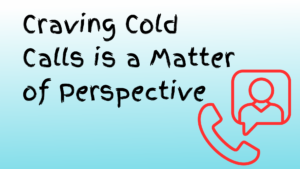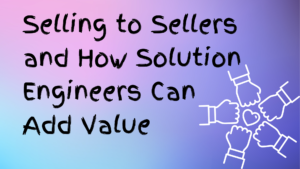
Continuous Improvement for Sales Engineers

By Ramzi Marjaba
The world is a-changing. Every day a new technology pops up from somewhere or another. Every day, I find out about a technology that has been around a while, but I’ve never even looked at it. Some would say that the rates of changes are faster than the rates that our brains can keep up. Luckily we live in an environment where the workload can be divided amongst people you don’t know, and still, the knowledge is shared, either through blogs, podcasts, and paid services.
A huge skill in the SE skillset should be the ability for continuous learning. SEs, more than any other kind of engineer, need that ability on a wide scale of technologies. Don’t get me wrong, engineers, in general, need to continue updating their knowledge. But most can focus on one or two areas, whereas SEs, they need to spread that over as many areas as the products they sell. Let’s take a look at a Cisco Generalist SE. Their knowledge has to include routing and networking, security, SD-WAN, Datacenters, Collaboration tools, network monitoring, system administration, and more, much more. On the other hand, the software engineer working on routing, they usually focus on 1 aspect of routing, for example, BGP only, not BGP, OSPF, ISIS, MPLS, Segment Routing, EVPN, Optical Switches, OmniSwitches, collaboration tools… you get the point.
Even great thinkers like Warren Buffet are all into continuous learning. According to a CNBC, Warren Buffet spends 80% of his days reading. Yet Sales Engineers, from my experience, spend 90% of their day helping Account Managers, visiting customers, and working on Demos. No time for intentional self-improvement, more of a learn on the job situation, and it is reactive.
How much is enough?
Now the question I hear is how much self-improvement is enough self-improvement? Or better yet, how much self-improvement is not enough self-improvement? The answer is, there is no such thing. In the book Atomic Habits, the author Jame Clear talks about the 1% rule. This means that every day, you have to try to be 1% better than you were yesterday.
Charles Poliquin, the late strength and conditioning coach for Olympic champions, bodybuilders, and strength athletes said that every night he asks himself what 3 new things that he learned that day. Keep in mind that Mr. Poliquin was at a point in his career where he did most of the teaching, yet, these incremental improvements (3 things per day) were important to him, and should be important to us. They don’t have to be huge either. They could be small, like learning when a feature was added to a product or learning to overcome a system upgrade that went sideways. As long as we are getting better every day, and documenting our learnings (I use Evernote for that).
What to focus on?
Being a generalist SE, we have so much we need to learn, so little time to focus on learning. We can spend all day learning and be experts in everything that we sell, but if we’re not out selling, then we are not successful Sales Engineers. So we need to choose 1 topic at a time and focus on that.
I really like the concept of just in time learning. This is when you are like Jon Snow, and you know nothing about a specific topic, and then you have a meeting coming up about that topic. You could either get the specialist involved right away, if you have one or if they have time, or you can go ahead and research and learn about it. It’s a good excuse to give an Account Manager saying “Hey, I need to learn this so we can sell”. The issue I have with this is if we don’t keep up the learning after the meeting, it would be like cramming for university and forgetting everything afterward.
Just in time learning could be also for technology or feature coming down the horizon, if it makes sense for your customers. For example, 5G is all the rage in my domain, however, my customers are not really working on 5G in my geographical area. So should I spend time learning that? Probably, but it is not a priority since all my customers are interested in RestAPI and Python today. So that’s where my focus goes.
Another way to pick what you need to learn is if we go to customer meetings and there are always the same 1 or 2 questions that I have the standard response to “I’ll get back to you on that”, well maybe it’s time to dig into that and learn it.
Finally, you can a self-assessment, or work with your manager to come up with a learning plan.
How do we do this?
There are so many different ways, different software, websites, resources that we can choose to start with, and it all depends on how each and every one of us learns.
1- Hands-On
I believe 1 common thing that most SEs have is learning by doing, so make sure you have an environment fit for you to play with. If you are into networking, then install virtual routers on your computer, either through GNS3 or VMware Workstation (Fusion if you are on MAC). If it’s Software or SaaS, then have access to it, and make sure whatever you do does not break anything for anyone else. Most companies will not allow you to do so anyway, but this is one situation where it’s better to ask for permission than forgiveness.
This allows us to “Learn by breaking” as I like to call it. If I’m working on a new product or technology for the first time and I don’t break it several times by the end of the day, then I didn’t learn much.
It also allows us to try different scenarios based on customer questions.
2- Online Resources.
There are so many resources that can be used as tools for us to learn. There are free resources, like podcasts, youtube videos, and other sites that we can use to enhance our skills.
I’ve used O’Reilly Safari in the past to read books and check out Cisco certification amongst others. One of my colleagues has been using it for years.
I’ve recently interviewed Sam Pena who is the Sr. Director of Pre-Sales for Pluralsight on the podcast. You can check out the show HERE. I’ve never heard of Pluralsight before I first talked to Sam. After that, I reached out to my cousin who works as a Software Design Manager for an Ottawa Company, and he speaks so highly of Pluralsight. I’m playing with it right now using their 10-day free trial to learn more about Rest API. Get your 10-day free trial here
3- Company Resources
Most companies have resources that Sales Engineers can look at. At least I hope that is the case. There are user manuals that you can check out, internal videos, some enablement teams. Create a list of all these resources, and start going through them based on the learning plan you designed earlier.
Some companies don’t have great manuals or documentation that can help you, but all of the organizations that I’ve worked for had an email list where anyone can ask questions. You might be too timid to ask a question initially, but as you start knowing what you are doing, you will be able to do just that. Also, when I start at a company, I usually like to go through the topics in the email list. If there are any technical questions that have been answered, I use them as a practice to figure out how someone got to the answer.
4- Books (blasphemy)
Books still exist! And we should use them. There are books about all the different technical subjects that we want to learn about. I am personally interested in Networking and Security, so I work on my CCNA (Cisco certification) or any security certification, cloud or hardware-based. There are so many other books that we can look at.
Why would I choose books over video courses?
- I like books
- I find it easier to search for something on books than have to scroll through an entire video to find a section that I care about. I guess that’s why Greg Dickenson started Omedym.com
- Makes me look smart 🙂
5- Accountability Partners/Mastermind
I find accountability partners very useful. They don’t even have to be in the same organization, they just have to be committed to self-improvement. You just tell them the actions you are going to commit to, they don’t need to understand what those mean, but the week after when you meet again, you have to prove that you performed those actions, and what results they yielded.
You can do something similar with masterminds. I believe masterminds if done properly and get full commitment from everyone involved, maybe the greatest way to accomplish the goals we set for ourselves while helping others achieve their goals. A mastermind is weekly, bi-weekly or monthly meetup (virtual or in-person) for 5 to 10 people to hold each other accountable, encourage each other, share ideas, in order to achieve their individual goals. There is no sugar coating. If someone needs coddling, they need not be there since this is a true space.
If anyone is interested in joining a mastermind, connect with me via email or LinkedIn.
6- Teach
In order to teach, you really have to understand what you are talking about. I find that even if I’m pretending to teach, I find kinks in my knowledge armor that I then have to fix and make stronger. It forces you to think critically. The question “why” comes to mind often when I’m preparing for a training session.
Why is it done this way?
Why would we care about that?
Why am I standing in front of a room of strangers?
So many questions.
All of these lead me to do more research, understand the product/solution better, which in turn makes me a better salesperson.
7- Gamification
Let’s start with a definition for a new word I want to add to the dictionary
Competification: Make a competition out of nothing.
People are competitive. Men, women, and even children are competitive. So many times I sit eavesdrop at my 3-year-old son and nephew talking about who’s faster, or who jumps higher, or who’s daddy can beat up who (I can beat up my brother easily)
The point is, when there is a competition, we tend to focus more, especially if it is things in our control. For example, the competition would be who would commit to answering 5 questions a week on the email list I mentioned above. Or who can perform internal training on a new feature?
As for the reward, bragging rights usually suffice. All these are ways to help push us to get better. And even if we lose, we win because we worked on getting better.
When do we do all this?
That is the big question. Part of our role as SEs is to stay up to date on the latest and greatest solutions we can offer and market trends that can help our solutions. But while working with AMs, their goal is to have us in front of as many customers as humanly possible. So there is a dichotomy as Jocko Willink would put it. What is best for the sales team does not exactly match what the AMs want. However most AMs will understand when you talk to them about the fact that if you don’t know your stuff, you will not be able to offer a solution to the customer, therefore you need to learn. That is why you need to book some time on your calendar to focus on just improvement. All the great thinkers and successful business people set time aside for learning, why shouldn’t you?
That being said, that time can be during working hours (which is what I do) or after working hours. Many SEs do that latter. I find that is ok if there is no family waiting at home, but I have 2 kids and a side hustle, so my learning time is going to have to be during work hours. That is why I like to take advantage of demos and POCs. When that is on the horizon, most Account MAnagers will understand that you need to focus and work on that. So it is a good time to work on improving oneself.
Check out the Time and Task Management for SEs blog
Stay in the loop
Subscribe to get our latest content by email.
Success! Now check your email to confirm your subscription.



